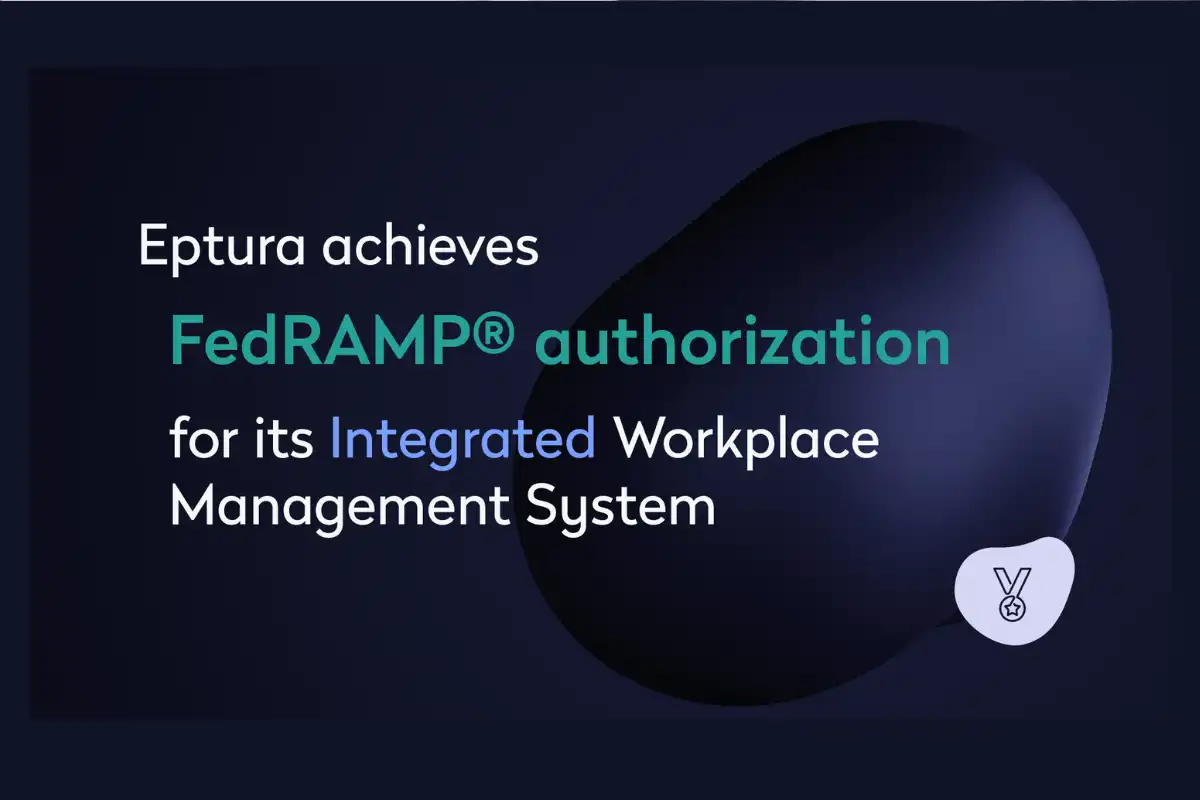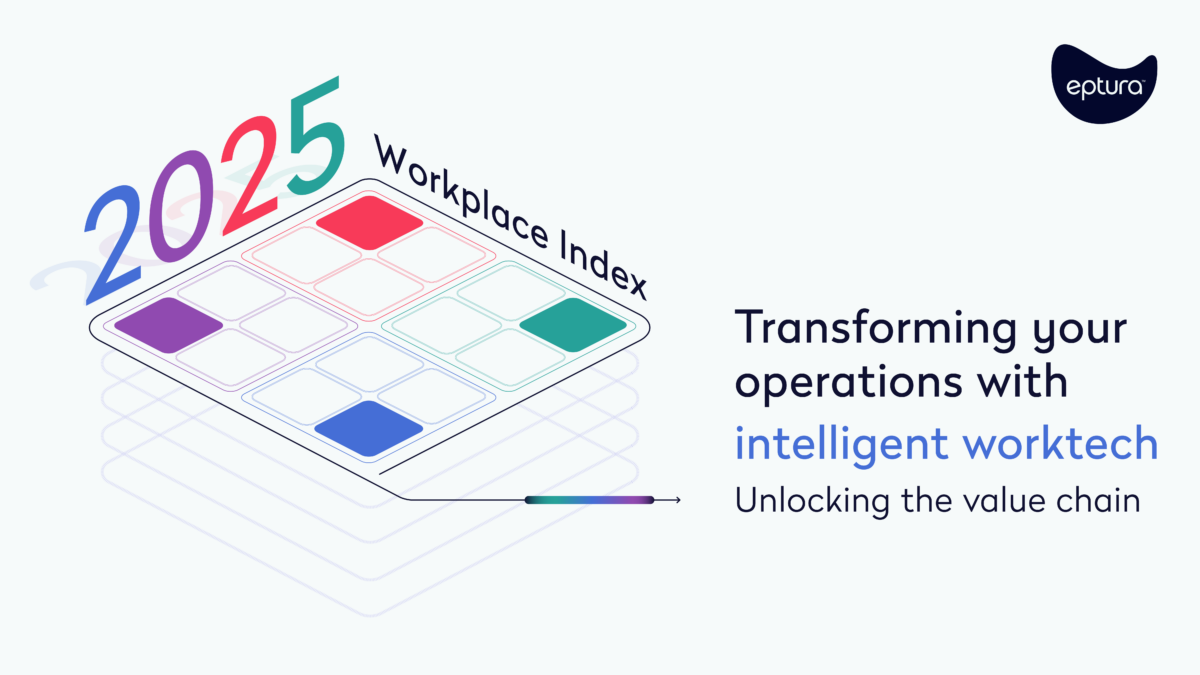
ATLANTA – Nov. 8, 2023 – Eptura, the global worktech leader, today released its Q3 Workplace Index which analyzes building use, asset data, and behavioral insights to provide a comprehensive view of the rapidly changing modern workplace. The report revealed office occupancy is top of mind for many CEOs: 74% of operational leaders are reporting to their CEOs on occupancy metrics at least quarterly; 40% are reporting to their CEOs monthly.(1)
Return-to-office mandates have gained momentum in 2023, particularly post Labor Day. Media coverage of these mandates often highlights a heated debate between executives and employees about what the right return-to-office strategy looks like. When leaders were asked what metrics their organization uses to measure the performance of the workplace, Eptura’s research found:
- 27% are measuring space utilization
- 24% consider employee feedback
- 21% look at employee attendance rates
- 17% evaluate cost savings
- 11% review employee retention
“The reality is there isn’t a one-size-fits-all strategy and CEO motivations for these mandates can vary from issues of productivity to generating opportunities for in-person mentorship and team building,” says Brandon Holden, CEO of Eptura. “It is clear CEOs need to have access to the right mix of data on workspace usage, employee behavioral patterns, and feedback to decide the strategy that will best meet employee needs as well as business goals.”
What do employees want?
When asked what would make them want to use their workplace more, the top three most selected responses were:
- More social areas such as cafes and outdoor spaces at 45%
- Better technology like collaboration and scheduling software at 38%
- More recreational areas like pool tables and table football at 34%(2)
This presents an interesting balance of items that would create more opportunities for team bonding and socialization, while also increasing productivity with the right technology to power collaboration. Given that roughly one-third of all space bookings are unplanned, focusing on these preferences will help mitigate some of the challenges of working in a hybrid office environment and attract more employees into the workplace.
U.S. metros are returning to the office at varying rates
While return-to-office mandates are gaining momentum across the country, some employees in major metros are headed back in-person faster than others. Year-over-year, Eptura’s sample of U.S. metropolitan city desk bookings shows:
- Dallas desk bookings grew 72% from Q3 2022 to Q3 2023
- New York City desk bookings grew 58% from Q3 2022 to Q3 2023
- Chicago desk bookings grew 52% from Q3 2022 to Q3 2023
- San Francisco desk bookings grew 26% from Q3 2022 to Q3 20233(3)
Automation can reduce energy consumption and costs
While CEOs want to see employees return to the office in some capacity, they are also asking operational leaders to reduce costs. Automation can offer facility teams improved service management and cost control within their buildings. This becomes particularly important when office occupancy patterns are less predictable. Automation can be used not only for reducing labor costs but also for determining when to adjust service requirements.
Survey results indicate that many organizations are actively adopting automation to enhance efficiency. When asked what facilities automation was enabled in their workplace, operational leaders responded with:
- Lighting control to reduce energy consumption (87%)
- Security systems to monitor and control access (83%)
- HVAC systems to monitor temperatures and reduce energy costs (83%)
- Fire and life safety systems to detect and respond to emergencies (74%)(4)
Although most organizations already use automation in some capacity, there are still plenty of untapped opportunities. For instance, only 11% of organizations automate cleaning systems to detect daily usage and reduce cost.(5)
To download the full Workplace Index Report by Eptura, please visit here.
Methodology
The findings of Eptura’s Q3 Workplace Index are based on the company’s proprietary data and include analysis of a representative sample from 16,000 customer companies as well as two surveys conducted by independent research firms.(6) The survey of employees included 4,885 respondents from the U.S., Canada, the U.K., France, Singapore, and Australia. These representative countries echo the regions covered by Eptura’s proprietary data: Americas, EMEA, and APAC. All those screened went into their workplace (frequently or infrequently) and all worked in businesses of 1,000 employees or more. The second survey of operational leaders includes 90 respondents from the U.S. and U.K. All those screened worked in a senior operational role (VP or above) and all worked in businesses of 1,000 employees or more.
References
(1) Eptura 2023 Workplace Index Q3, Value creation and cost control, 37.
(2) Eptura 2023 Workplace Index Q3, Value creation and cost control, 39.
(3) Eptura 2023 Workplace Index Q3, Freedom and connection, 80-81.
(4) Eptura 2023 Workplace Index Q3, Value creation and cost control, 45.
(5) Eptura 2023 Workplace Index Q3, Value creation and cost control, 45.
(6) Eptura 2023 Workplace Index Q3, External sources, 129.
About Eptura™
Eptura is a global worktech company that provides software solutions for people, workplaces, and assets to enable everyone to reach their full potential. With 16.3 million users across 115 countries, we are trusted by more than 16,000 of the world’s leading companies, including 40% of Fortune 500 brands, to realize a better future at work. For more information, visit eptura.com.
Media Contact
Allison Knight
[email protected]
806-570-9819




